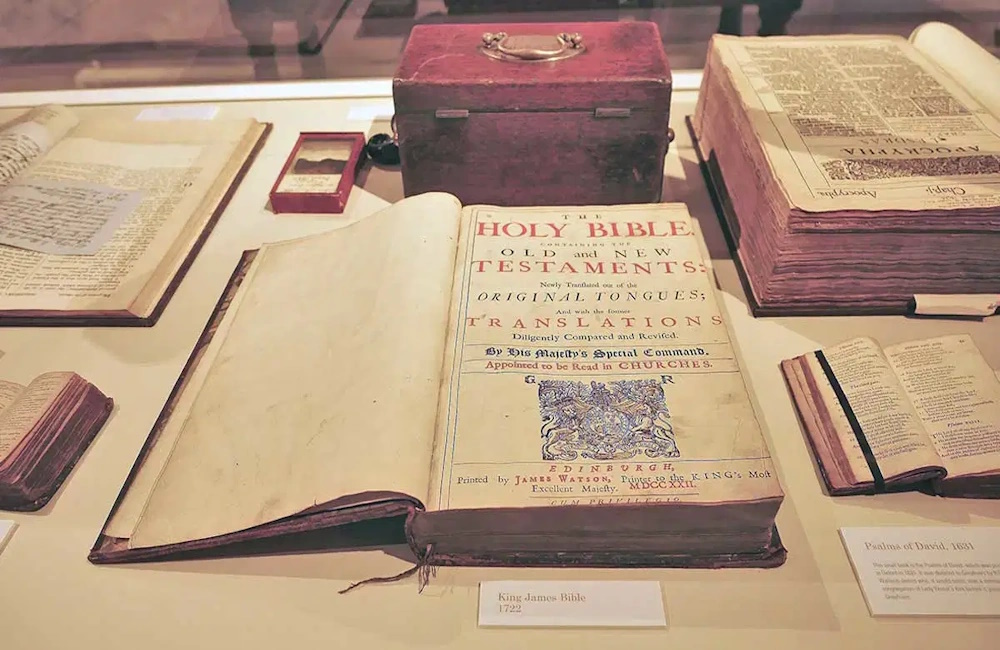Can the Word of God Be Corrupted?
Can the Word of God truly be subject to corruption? If we accept the premise that the Bible is the divine revelation of God, then it follows naturally that every writer of scripture did not compose from mere human inspiration, but was rather divinely guided—writing under the direct influence of God, who revealed His sacred word to them. This concept is foundational in many faiths.
Muhammad and Prior Revelations
Even the Prophet Muhammad proclaimed that each Surah of the Qur’an was revealed to him by God Himself. Consequently, he could not dismiss the authenticity of prior revelations, such as the Torah and the Gospel, without placing himself in a precarious theological position. To deny these previous revelations would lead to an inevitable question: “How can you claim to be the first and only person with whom God has ever communicated?”
It is for this reason that Muhammad found himself obligated to acknowledge the legitimacy of earlier prophets, like Moses and Jesus, who, he conceded, had been given authentic revelations from God. To deny the divine origin of their messages would have cast doubt upon his own claims of prophethood. By affirming the truth of these earlier revelations, he established himself as part of a continuous lineage of divine messengers, sent by the same God.
The Problem of Corruption and an All-Powerful God
However, if we pursue this reasoning further, we must ask: after God revealed the Tawrat (Torah) and the Injil (Gospel) to their respective peoples, without any doubt of their divine origin, how could an all-powerful, omnipotent God allow His sacred word to be corrupted by mere human hands over the centuries? Would this not imply that God is either careless or powerless in safeguarding His divine message? A God who is truly omnipotent and transcendent would surely ensure the eternal preservation of His word, protecting it from the distortions of time.
For Muslims who assert that the Bible, specifically the Torah and the Gospel, has been altered by human interference, this argument does not withstand scrutiny when considering God’s omnipotence. After all, Muslims firmly believe that the Qur’an has been flawlessly preserved over the last 1,400 years by the will and power of an almighty God. If they believe that the Qur’an has been perfectly preserved by the will of an almighty God, then how could that same God allow His earlier revelations to be corrupted? Such a claim seems to undermine the belief in an omnipotent God, fully capable of preserving His word. If God protected the Qur’an, why would He not have also protected the earlier revelations given to previous prophets? Thus, the very notion that earlier scriptures could have been corrupted diminishes the belief in a God who is omnipotent and fully capable of preserving His revelations. If God can protect the Qur’an from corruption, why would He not have extended the same protection to the earlier revelations delivered to prophets before Muhammad?
The Muslim Claim of Biblical Corruption
There is further compelling evidence that supports the notion that the Torah and the Gospel were not subject to corruption. Historically speaking, the Jewish people have maintained an extraordinarily meticulous system for the preservation of their sacred texts. The transmission of the Torah, for instance, was carried out with the utmost care, precision, and reverence. Jewish scribes and scholars adhered to rigorous copying methods, and even today, they can trace the genealogies of their people back through the centuries with remarkable accuracy. This level of dedication to preserving their holy texts underscores the meticulous efforts undertaken to safeguard the integrity of the Torah.
As for the Gospel, christians possess an impressive collection of over 500 ancient manuscripts, many of which date back to the period immediately following the life of Jesus. These manuscripts are strikingly consistent, with only minor textual variations that do not alter the essential message of the text. This vast body of documentation offers compelling evidence that the Gospel, much like the Torah, has remained largely unchanged and faithfully preserved.
Conclusion: Theological and Historical Scrutiny
Therefore, the claim that the Torah and the Gospel have been altered by human hands falters under both theological and historical scrutiny. Theologically, it challenges the notion of an all-powerful God who would not allow His divine word to be distorted. Historically, the rigorous methods of preservation employed by both the Jewish and early Christian communities further disprove the claim that these texts have been corrupted.
The notion that the Bible has been corrupted must be addressed because if earlier revelations, such as the Torah and the Gospels, are indeed preserved in their original form, it raises a significant theological issue for Muslims. Should the Torah and the Gospels remain unaltered, this would present a substantial challenge to the credibility of the Qur’an. The reason is that the teachings of the Qur’an, which diverge from those found in the Bible, would be called into question. In such a scenario, if the earlier scriptures are confirmed as authentic and uncorrupted, it would suggest that the Qur’an can not be a true or divine revelation, as its teachings would conflict with the established messages of the Bible.
